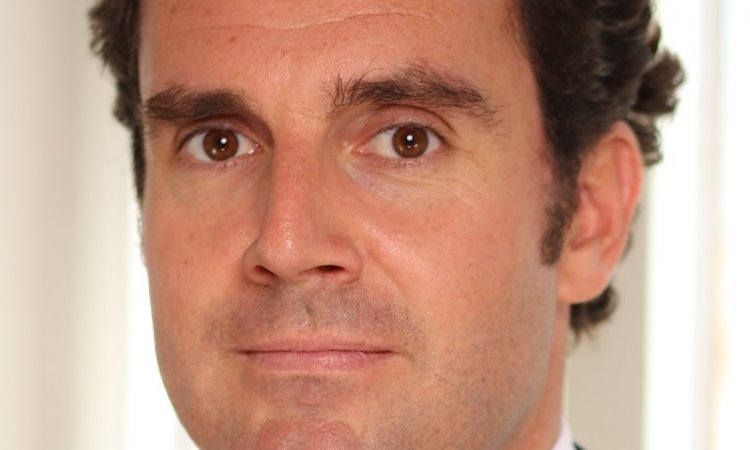Management
Big Data power will improve healthcare
Big Data sits at the heart of addressing the challenges that will lead to a more sustainable health and social care system. Hospitals and health systems must embrace a Big Data approach if they are to deliver better care for patients according to Dr Mark Davies, Medical Director of healthcare analytics company MedeAnalytics.
Report: Mark Nicholls

A speaker in a panel discussion entitled The Power of Big Data, at the EHI Live conference in Birmingham, United Kingdom, he warns that health and social care still lies ‘about 15-20 years behind almost every other industry’ in its uptake of technology. However, change is beginning because the ability to hold and process massive amounts of information offers the potential to process and model data in areas such as predictive analytics, mathematical modelling and segmenting populations.
If they are to exploit the potential of Big Data, however, health systems and hospitals need to address their fundamental approach to IT and Big Data, harness the potential of the technical capability, exploit IT capacity and shift from introspective organisations to actively participate in broader population health management. ‘These elements have come together in something of a perfect storm, which has put Big Data at the heart of trying to address some of the real challenges that lead us to getting a much more sustainable health and social care system,’ Davies said.
The challenges that exist in hospitals are often determined by outside factors, such as referral numbers, levels of illness or help-seeking behaviour in the populations they serve. Therefore, the answers to those problems will be derived from a joined-up data set that understands the entire patient journey and the context in which the hospital operates.
This linked data that describes a whole care economy is changing, becoming more timely and granular, down to individuals rather than departments or services and includes patient-generated data with patient-reported outcome and experience measures, data from wearable health devices and even patient-generated diagnostics.
Now, that is being augmented by other data sets, such as transport, housing and weather. ‘This data is available to us to understand the broader eco-system of our population and some of the interplay between these and illness and wellbeing,” said Dr Davies, former Executive Medical Director for Health and Social Care Information Centre.
‘No conversation on Big Data is complete without talking about genomics and proteomics – starting to understand our genetic make-up in a way that we get a much better understanding of our risk of developing disease, which opens up the whole prospect of personalised medicine.’
Four critical areas where Big Data offers opportunities within a healthcare setting are: targeting care more efficiently; understanding interdependence; using boundaries and redesign principles to measure outcomes; and audit capability.
In terms of targeting care more efficiently, examples could include combining data on people at risk of respiratory disease with weather or pollution data, or analysing populations at risk of falling – an area where MedeAnalytics has developed an algorithm that combines primary and secondary care data. ‘That algorithm is outperforming face to face assessments by a community nurse, so it is very reliably identifying groups of people who are suitable for fall prevention intervention,’ Davies points out.
With interdependence, Big Data can be used to combine data sets to influence the relationship between elements of the care delivery system to model onward care pathways with an ‘information architecture’ based around individuals.
Big Data can be used to measure clinical outcomes from particular levels of intervention and used as the basis for discussion on any service reconfiguration, and also to audit performance and deliver quality improvement programmes focused more on joined-up care.
There are challenges, particularly information governance and finding ways of sharing data to improve healthcare, but not breach patient confidentiality or privacy protocols. There are privacy-enhancing techniques that mean there are no longer excuses to link data. However, other challenges lie in system alignment and the capacity in the system to use insights to redesign services, so new ways of working are required.
Data security also remains a paramount concern but, as in everyday life with risks in online shopping or banking, the risk/benefit balance is largely around convenience and cost. ‘But, in health it’s literally life and death,’ said Davies. ‘I think there’s a very clear relationship between data driven decision-making and design and its impact on reducing mortality.’
Big Data, he believes, will make healthcare more viable, deliver improved clinical outcomes and bring health and social care closer together because of that ability to ‘join up’ systems, break down barriers and create an ‘information architecture built around the individual’.
Davies concludes: ‘If you put the individual at the centre of things, it forces different sectors involved in their care to interoperate and share information meaningfully, to create a much more coordinated approach to care.’
Also speaking at the EHI Live session was Julian David, CEO of techUK, the UK’s technology trade association. ‘Whilst the health and social care sector has made good progress in its approach to harnessing Big Data,’ he said, ‘there’s still huge potential to use intelligent analytics to deliver better public services to the most vulnerable. The benefits are clear from the potential to bring efficiencies, reduce treatment costs, increase prevention and improve the quality of life for patients.’
PROFILE
Mark Davies MD is Medical Director, MedeAnalytics International. With more than 20 years’ experience as a GP, he joined the company in 2014 having previously worked in a number of informatics roles in the Department of Health, Cabinet Office and as Medical Director of the Health and Social Care Information Centre. With a particular interest in clinical quality measurement and opening up data to the public, he was previously National Clinical Director for NHS Connecting for Health.
11.11.2016





